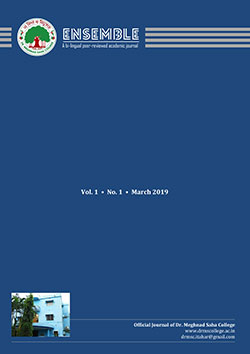EXPERIENCE OF EAST BENGALI REFUGEES ON PARTITION: UNFOLDING LIMINALITY THROUGH NARRATIVES
Abstract:
The term ‘liminality’– derived from the Latin word Līmen meaning a threshold, introduced by Arnold Van Gennep in the context of analyzing rituals in small-scale societies, and theorized by Victor Turner in the late 1960s, has gained popularity in the field of contemporary refugee studies and has been considered by various scholars to be one of the distinct characteristics of the diasporas. On the backdrop of the historical partition of the Indian subcontinent and consequent mass migration, present work tries to understand how the notion of class-status-power-authority and especially gender played crucial roles to create the disjuncture into the habitual way of being of the East Bengali Hindu people during and aftermath of the partition. These East Bengali Hindus fled their homeland, became refugees in the newly formed province of West Bengal in India, and continued thereafter, living through an almost life-long passage, which remained betwixt and between ‘what they had been’ and ‘what they came to be’. Based on the fieldwork experiences of the author in a refugee settlement of West Bengal, this article tries to analyze refugee accounts on dislocation to shed light on how life in limbo challenged the agency of the refugees pushing them into a stage of continuous contestation and negotiation; and thereby started for them the process of shaping and reshaping their way-of- being, and structuring and restructuring of ‘self’ and identity.
Keywords: dislocation, forced migration, habitus, gender, patriarchy, identity
https://doi.org/10.37948/ensemble-2020-0201-a019
Views: 2489



